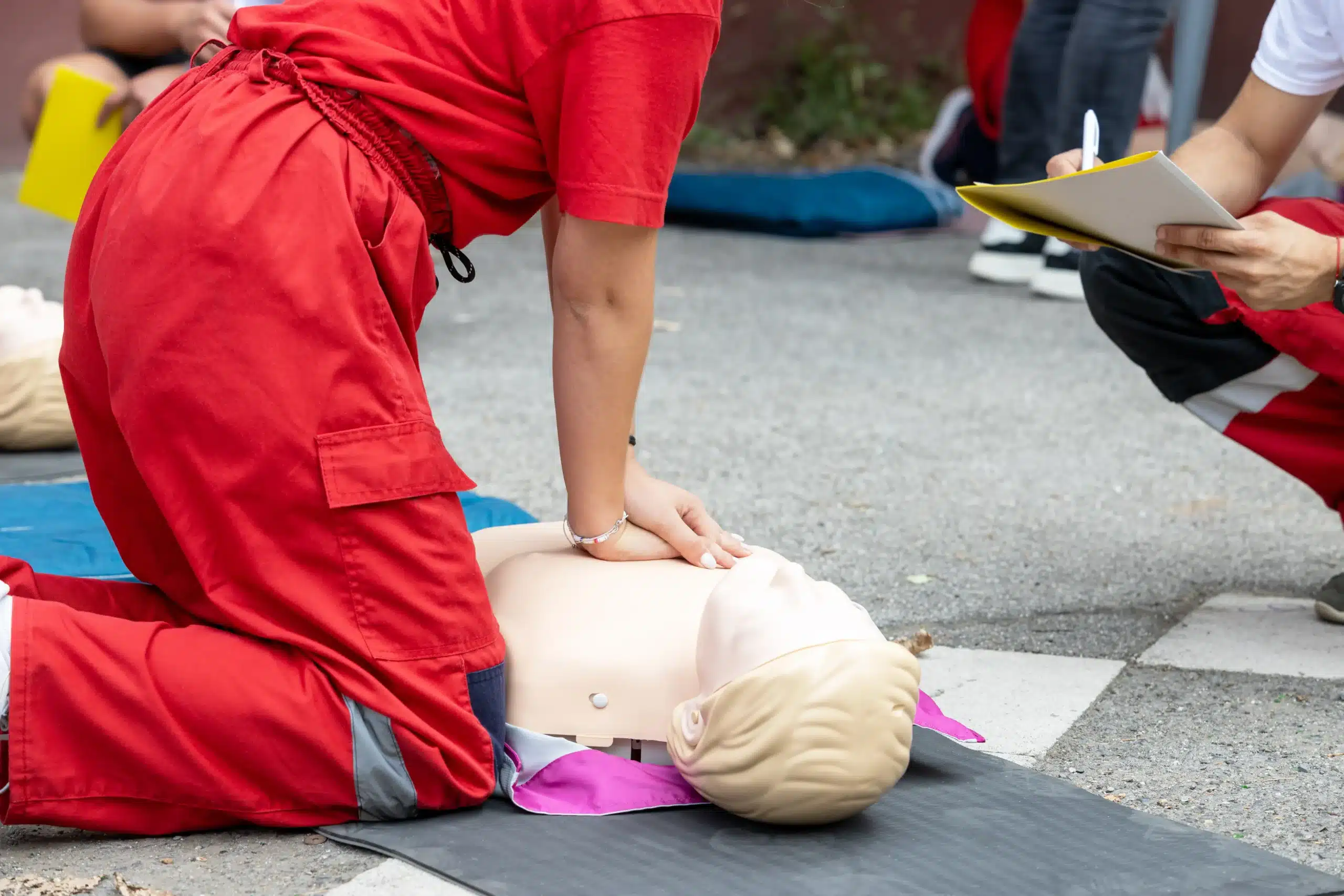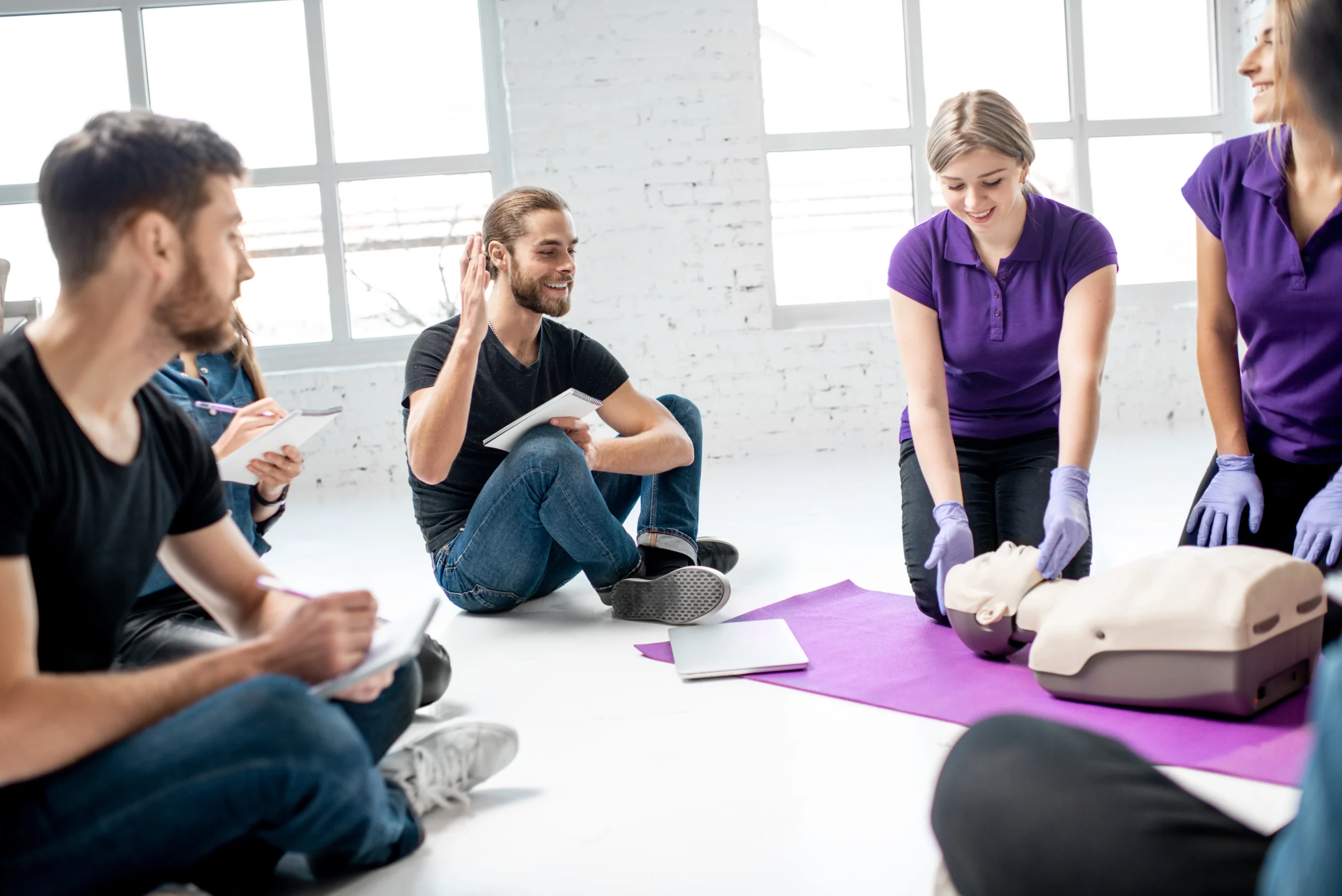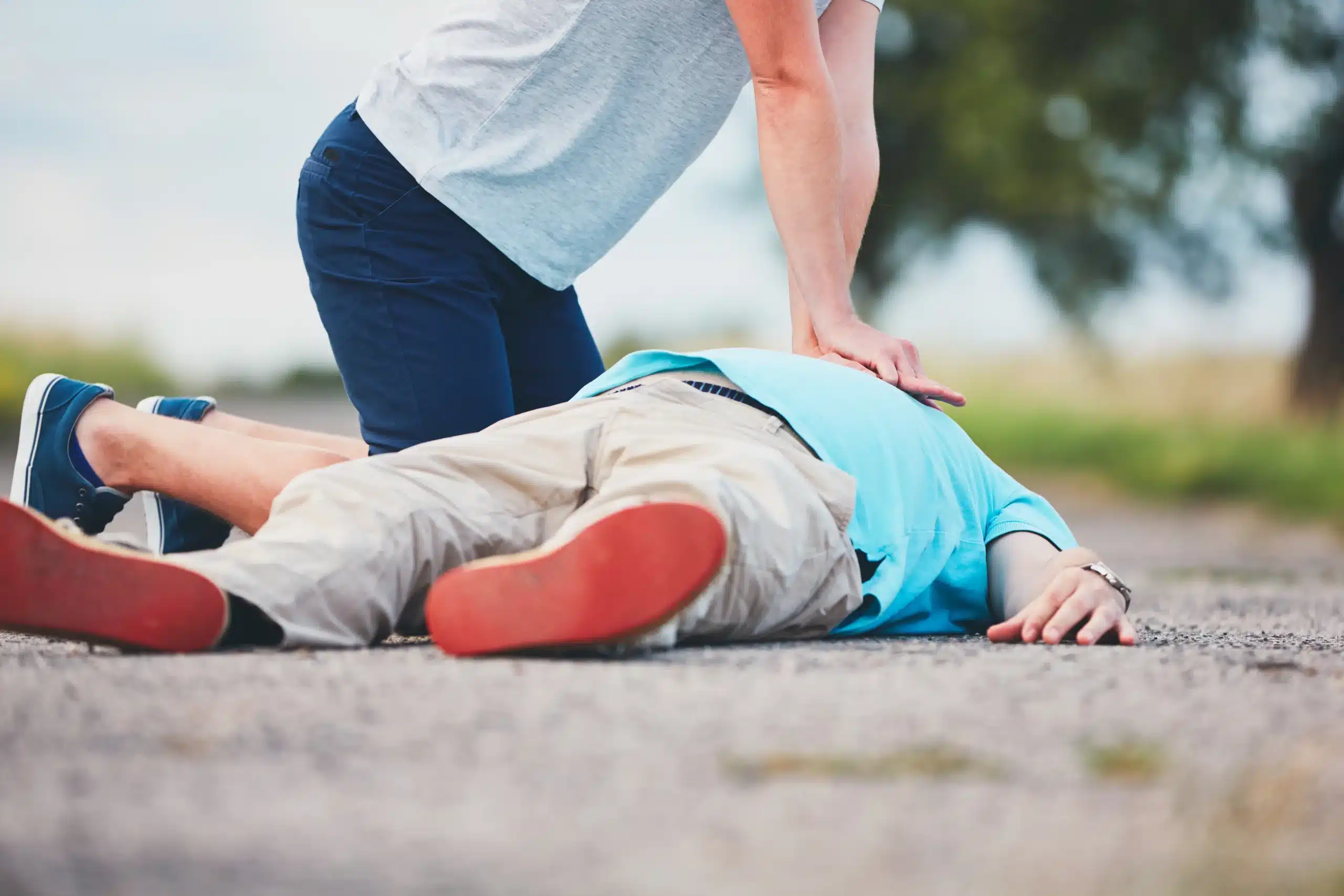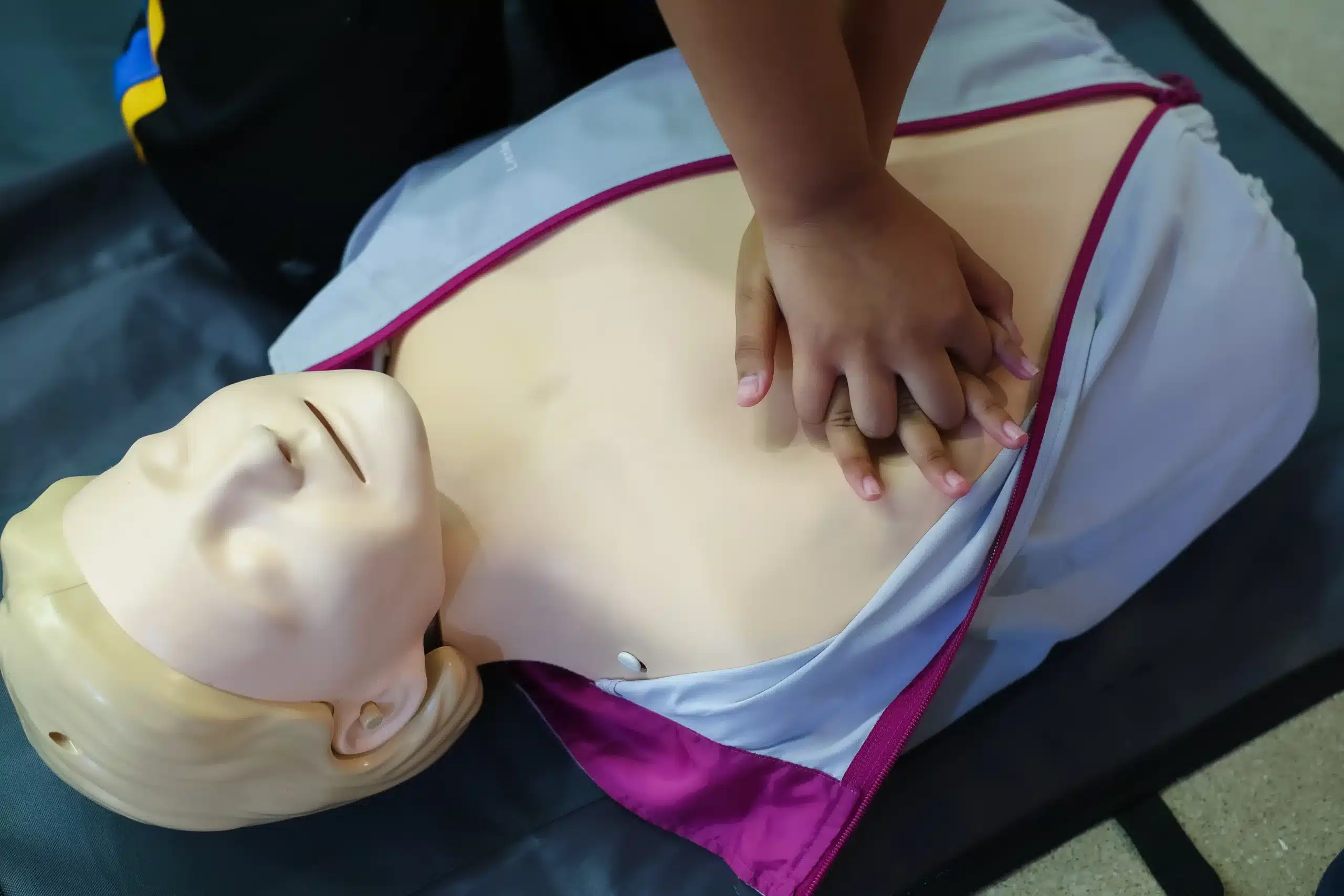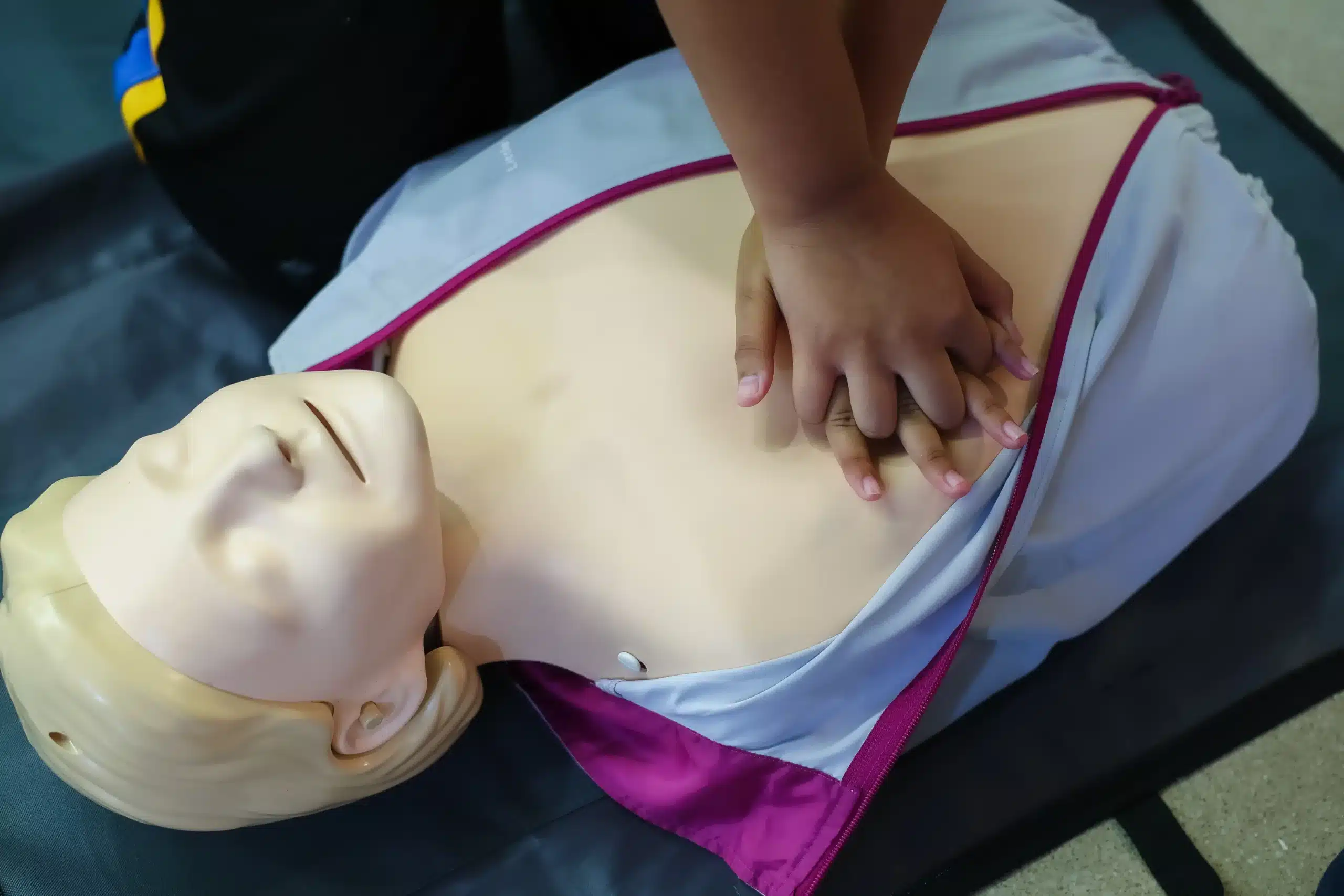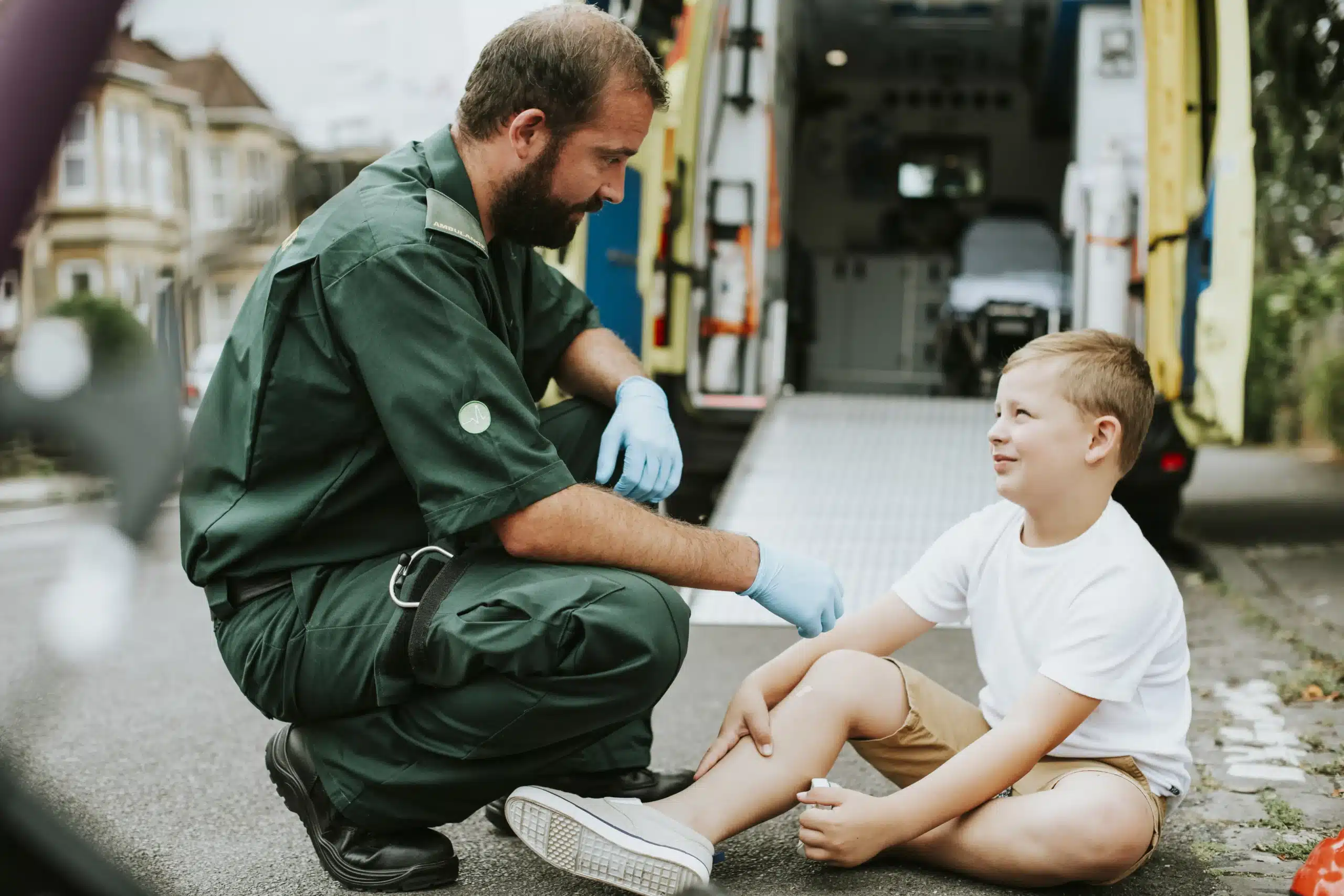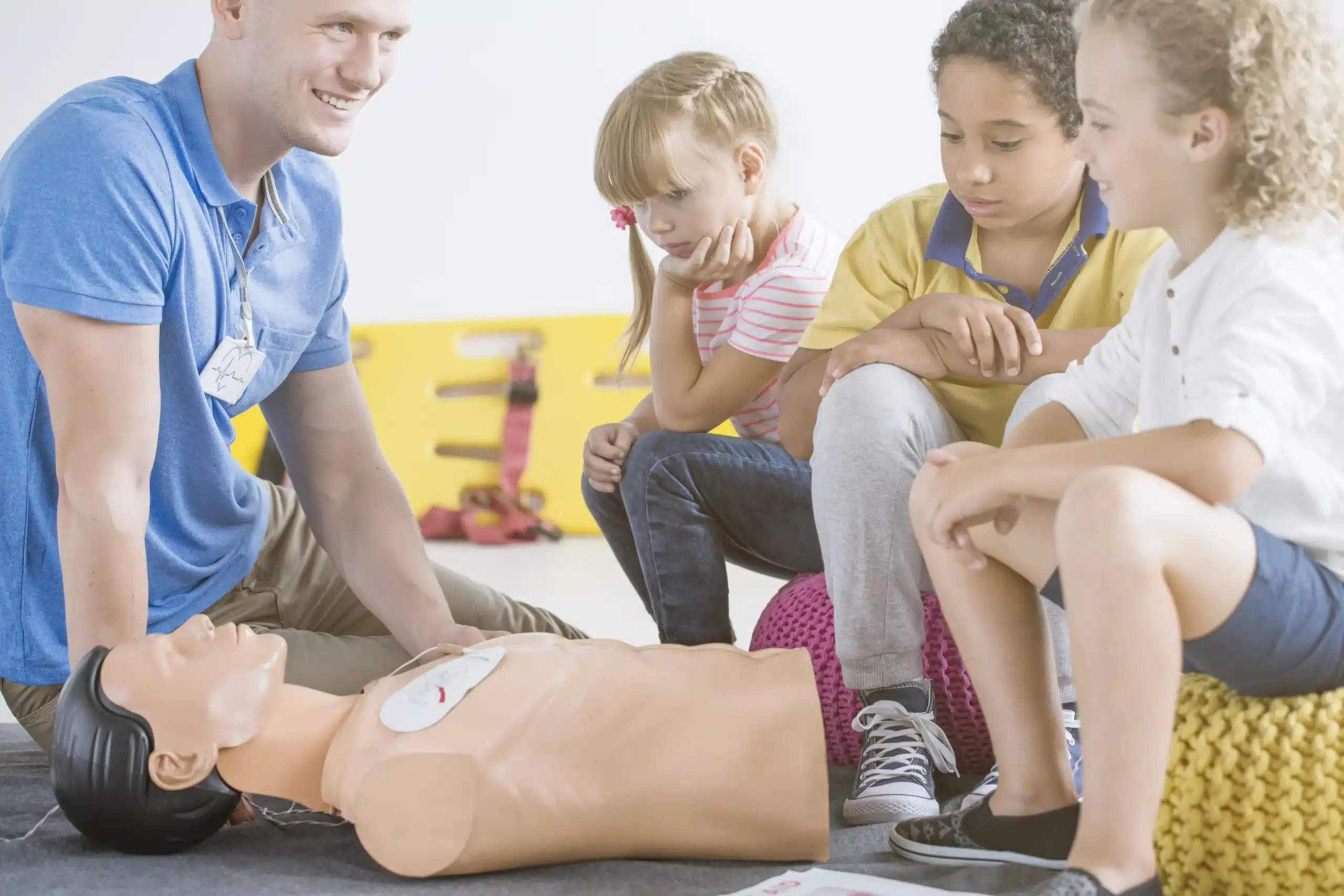Empowering yourself with life-saving skills is one of the most valuable things you can do. CPR and first-aid training provides the knowledge and confidence to respond effectively during medical emergencies. This guide focuses on CPR and first-aid in Rohnert Park, offering a practical roadmap for finding the right training program. We’ll explore the types of certifications available, the importance of instructor qualifications, and flexible learning options to fit your busy schedule.
Key Takeaways
- CPR and First Aid skills save lives: Equipping yourself with these skills allows you to confidently respond to emergencies, providing crucial assistance until professional help arrives. Choose the right certification level, from basic CPR to advanced life support, based on your individual or professional needs.
- Select a reputable training provider: Look for experienced instructors, hands-on practice, and current equipment. Consider factors like cost, schedule, and location when making your decision. Ask about group discounts and tailored training options for businesses or organizations.
- Maintain your certification: CPR and First Aid certifications expire, so regular renewal is essential. Stay up-to-date with the latest guidelines and ensure your skills remain sharp and effective. Explore flexible learning options, including in-person, online, or blended formats, to fit your lifestyle.
What is CPR and First Aid Certification in Rohnert Park?
CPR and First Aid certification equips you with the skills to respond to medical emergencies. These certifications demonstrate you’ve completed training that meets nationally recognized standards. In Rohnert Park, as elsewhere, these skills are invaluable for potentially saving lives.
What CPR and First Aid Certifications Mean
CPR certification confirms your ability to perform cardiopulmonary resuscitation, a life-saving technique used when someone’s breathing or heartbeat has stopped. First Aid certification, often taken alongside CPR training, validates your knowledge of treating minor injuries like cuts and burns, and managing more serious medical situations until professional help arrives. Providers like Vive CPR offer these certifications, which are essential for healthcare professionals and beneficial for anyone in Rohnert Park wanting to be prepared.
Why Proper Training Matters
Proper CPR and First Aid training isn’t just about memorizing steps; it’s about building confidence and the ability to react decisively in stressful situations. Quality training programs, such as those offered by Safety Training Seminars, emphasize hands-on practice and real-time feedback, ensuring you can effectively apply these skills during a real emergency. This preparedness can make all the difference.
Certification Validity and Renewal
CPR and First Aid certifications expire, so staying current is crucial. American Heart Association (AHA) certifications generally last for two years, while Red Cross certifications may have different validity periods. Regularly renewing your certification keeps your skills sharp and allows you to continue providing assistance when needed. Check with your certifying organization, such as the AHA or Red Cross, for their specific renewal process.
Find CPR and First Aid Classes in Rohnert Park
Finding the right CPR and First Aid class in Rohnert Park can feel overwhelming with so many options. This section breaks down the types of certifications, recognized providers like the American Heart Association and Red Cross, and local training centers to help you find the perfect fit.
Types of Certifications Available
Several CPR and First Aid certifications cater to different needs and experience levels. Common certifications in Rohnert Park include:
- CPR (Cardiopulmonary Resuscitation): This certification teaches you how to perform chest compressions and rescue breaths on someone who has stopped breathing.
- First Aid: This course covers essential skills like treating minor injuries, burns, and recognizing the signs of a medical emergency.
- BLS (Basic Life Support): Geared towards healthcare providers, BLS certification covers CPR, AED use, and other basic lifesaving techniques. You can find more information on our BLS page.
- ACLS (Advanced Cardiovascular Life Support): This advanced certification is for healthcare professionals who manage cardiopulmonary arrest and other cardiovascular emergencies. Learn more about ACLS on our ACLS page.
- PALS (Pediatric Advanced Life Support): Designed for healthcare providers, PALS focuses on the specialized needs of infants and children during medical emergencies. Our PALS page offers additional details.
American Heart Association Courses
The American Heart Association (AHA) is a leading provider of CPR and First Aid training. Many organizations and healthcare facilities require AHA certifications.
Red Cross Courses
The American Red Cross also offers widely recognized CPR and First Aid certifications. They provide various course formats, including online and in-person options.
Local Training Providers
Rohnert Park has several local training providers offering CPR and First Aid certifications. Here are a few options:
Safety Training Seminars
Safety Training Seminars provides various AHA-certified courses, including BLS, ACLS, PALS, CPR, and First Aid. We offer a low price guarantee and group discounts.
Vive CPR
Vive CPR offers AHA-certified courses in various locations across Sonoma County, including Rohnert Park. You can explore their course schedule for more information.
Sonoma County Red Cross
The local Sonoma County Red Cross chapter offers various training programs, including CPR and First Aid. Check their website for local course offerings.
CPR Certification Institute
The CPR Certification Institute provides online and in-person CPR and First Aid training. Visit their website to learn more about their programs.
Survival CPR
Survival CPR offers CPR, BLS, and First Aid training throughout Northern California. They emphasize practical, hands-on training. You can find more information on their website.
Compare Certification Providers and Costs
When choosing CPR and First Aid training, comparing certification providers and their associated costs is essential. Understanding the value and recognition associated with different certifications helps you make an informed decision.
American Heart Association vs. Red Cross
Both the American Heart Association (AHA) and the American Red Cross offer CPR/AED and First Aid certifications. They both provide online and in-person classes, offering flexibility for your schedule. However, AHA certifications are generally more widely accepted, especially in healthcare settings. Many healthcare employers prefer AHA certifications due to their rigorous training standards.
Industry Recognition and Validity
A key difference between the AHA and Red Cross lies in industry recognition. AHA certifications are often considered the gold standard in healthcare, a critical factor if you’re pursuing a medical career. For those seeking basic life support training, our BLS course provides comprehensive instruction.
Course Pricing
Course pricing varies depending on the provider and the type of certification. The American Red Cross typically offers online Adult First Aid/CPR/AED courses for around $37. Always check with your chosen provider for the most up-to-date pricing. At Safety Training Seminars, we offer a low price guarantee, ensuring you receive excellent value.
Group Discounts and Special Rates
Many training providers, including Safety Training Seminars, offer group discounts. This can be a cost-effective option for businesses training multiple employees. Check with providers like the American Red Cross and Safety Training Seminars for potential discounts.
Low Price Guarantees
Some providers, like Safety Training Seminars, offer a low price guarantee, ensuring you get the most affordable training in the area. This commitment to providing high-quality training at competitive prices makes it easier to prioritize learning these life-saving skills. We’ll match any lower price for comparable training.
Evaluate Instructor Qualifications and Training Quality
Before committing to a CPR and First Aid class, look at the instructors’ qualifications. Choose a provider like Safety Training Seminars, where instructors have real-world experience, such as firefighters, paramedics, nurses, or EMTs. Learning from seasoned professionals who’ve handled actual emergencies adds depth to your training.
Instructor Experience
Experienced instructors bring practical knowledge to the classroom. They can offer insights into real-life emergency scenarios, answer your questions, and provide personalized guidance. This expertise builds confidence and prepares you to respond effectively in a crisis. Safety Training Seminars’ commitment to employing experienced professionals ensures high-quality, relevant training.
Hands-on Training
CPR and First Aid aren’t just about memorizing steps; they’re about developing practical skills. Look for classes that emphasize hands-on learning using current American Heart Association (AHA) guidelines. Safety Training Seminars offers this type of training, giving you ample opportunity to practice and build muscle memory. Active participation is key to retaining these life-saving techniques.
Advanced Training Equipment
The right equipment makes a difference in your training. Modern manikins with realistic features and feedback mechanisms provide a more immersive and effective learning environment. Check if the training provider uses up-to-date equipment, like that used in Safety Training Seminars’ courses, to ensure you’re getting the most from your training. This hands-on practice better prepares you for real-world emergencies.
Real-Time Feedback
Imagine practicing CPR and getting instant feedback on your compressions and technique. That’s the power of real-time feedback during training. Some providers use manikins with technology that provides immediate feedback on your performance. This allows you to correct your technique on the spot and develop proper form, leading to more effective CPR skills. Ask Safety Training Seminars about the technology used in their courses.
Discover Flexible Learning Options
Finding the right CPR and first aid training often comes down to how it fits into your schedule. Luckily, there are several options available, from traditional in-person classes to online and blended learning formats. Let’s explore what works best for you.
In-Person Classes
Many people learn best in a traditional classroom setting. In-person CPR and first aid classes offer hands-on training and direct interaction with instructors. This format allows for real-time feedback and the opportunity to practice skills in a controlled environment. Providers like Safety Training Seminars offer in-person CPR classes in Petaluma, Rohnert Park, and Novato. This makes it easy to find a convenient location near you.
Online and Blended Learning
If your schedule is tight, online or blended learning could be a good fit. Online courses provide flexibility, allowing you to learn at your own pace and on your own time. Blended learning combines online modules with in-person skills sessions, offering the best of both worlds. This format allows you to cover the theoretical material online and then practice your skills with a certified instructor.
RQI Training for Healthcare Professionals
For healthcare professionals, maintaining CPR skills is crucial. RQI (Resuscitation Quality Improvement) training focuses on high-quality CPR and AED use. This specialized program ensures healthcare providers can confidently respond to cardiac emergencies, providing the best possible care for their patients. Safety Training Seminars offers RQI training in Petaluma, equipping healthcare professionals with the skills they need.
Same-Day Certification
Need your certification quickly? Some providers offer same-day certification upon successful completion of the course. This can be especially helpful for those facing tight deadlines or last-minute requirements.
Course Duration and Scheduling
CPR and first aid course durations vary depending on the type of certification. Basic CPR courses can often be completed in a single day, while more advanced certifications like ACLS or PALS may require multiple sessions. Many training centers offer flexible scheduling options, including evening and weekend classes, to accommodate busy schedules.
Choose the Right CPR and First Aid Training
Picking the right CPR and first aid training is a big decision. It’s about more than just getting a certificate—it’s about gaining the confidence and skills to potentially save a life. Here’s what to consider:
Course Selection Factors
First, think about why you need this training. Are you looking for personal knowledge, to meet workplace requirements, or for professional development in healthcare? Your reason will guide you toward the right course. Healthcare providers often require ACLS (Advanced Cardiovascular Life Support) or PALS (Pediatric Advanced Life Support) certification. If you need to meet workplace requirements, a basic CPR and first aid course might be sufficient. Providers like Vive CPR offer a range of CPR, first aid, and BLS courses, giving you options.
Local Training Benefits
Choosing a local provider like Safety Training Seminars has advantages. Classes are usually more convenient, and you support a local business. Local providers often tailor training to the community’s specific needs. Safety Training Seminars serves Petaluma, Rohnert Park, and Novato, offering familiarity with local regulations and emergency procedures. Vive CPR also emphasizes local expertise, serving the San Francisco Bay Area and Sonoma County.
Customize Classes for Your Needs
Don’t hesitate to ask about customizing a class. Perhaps you have a group of employees needing training, or you want a refresher course. Many providers, including Vive CPR, offer custom CPR classes. This ensures training is relevant and engaging. Safety Training Seminars also offers group discounts for businesses.
Accessibility and Location
Convenience matters. Look for a provider with an accessible location and convenient class times. Safety Training Seminars offers classes in over 60 cities. Vive CPR provides AHA-certified classes throughout the San Francisco Bay Area.
CPR and First Aid Training Misconceptions
One misconception is that online-only CPR certification is always enough. While online courses like the American Red Cross Adult First Aid/CPR/AED Online teach basics, they often don’t fulfill workplace requirements, which usually require hands-on training. Ensure your chosen course aligns with your needs.
Participant Feedback and Improvements
A good training provider values feedback. It shows commitment to improving courses and ensuring a positive learning experience. Constructive feedback helps refine programs and achieve desired outcomes. Look for providers who actively solicit and respond to feedback. Safety Training Seminars’ commitment to its low price guarantee demonstrates a focus on customer satisfaction.
Related Articles
- CPR Training in Rohnert Park: Your Complete Guide – Petaluma CPR Classes
- Advanced Cardiac Life Support (ACLS) in Rohnert Park – Petaluma CPR Classes
- CPR Renewal in Rohnert Park: Find Classes & Costs – Petaluma CPR Classes
- Best Online CPR Classes in Rohnert Park – Petaluma CPR Classes
- Pediatric CPR & First Aid Classes in Rohnert Park CA
Frequently Asked Questions
How do I choose between American Heart Association and Red Cross CPR/First Aid certification?
Both are reputable, but AHA certifications are often preferred, especially in healthcare settings, due to their rigorous standards. Consider your specific needs and whether your workplace or field has a preference. For those outside healthcare, a Red Cross certification might suffice.
What if I’m nervous about performing CPR in a real emergency?
It’s completely normal to feel apprehensive. Quality training programs emphasize hands-on practice and feedback to build your confidence. Experienced instructors can also share real-world insights to help you feel more prepared. Remember, any action is better than inaction in an emergency.
What does “blended learning” mean for CPR and First Aid training?
Blended learning combines the flexibility of online coursework with the benefits of in-person skills practice. You’ll study the material online at your own pace and then attend a hands-on session to practice techniques with an instructor and receive feedback.
Are there discounts available for group CPR training?
Yes, many providers offer group discounts, especially for businesses training their employees. Contact training centers directly to inquire about group rates and package deals. This can be a cost-effective way to ensure everyone on your team is certified.
How can I find a CPR class that fits my busy schedule?
Look for providers offering flexible scheduling options like evening, weekend, or accelerated courses. Online or blended learning formats can also be a good solution for those with limited availability. Some providers even offer same-day certification.
